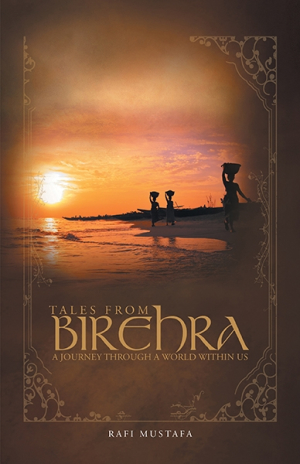
Tales From Birehra
A Journey Through a World Within Us
There is much to savor in this affecting and well-written Indian collection.
In Tales From Birehra: A Journey Through a World Within Us, author Rafi Mustafa blends accomplished storytelling and real history to deliver a poignant and ultimately heartbreaking portrait of a small, isolated village in north central India.
This collection of twenty interconnected stories features characters who tumble forth with life and vitality. The first dozen stories, comprising Book I, depict several generations of life in Birehra, stopping at the conclusion of the Second World War. Book II, titled Paradise Lost, stretches from the end of the war to the present, covering the move to independence for India and the high toll, in blood and dislocation, exacted by the partitioning of India and Pakistan.
The stories in Book I are not linear, but move back and forth in time, linked by location and recurring characters. The picture painted is of an insular but self-sustaining multicultural community. The inequality between upper- and lower-castes is honestly depicted. The microcosm reveals an ordered world in which wealthy employers care for their lower-caste workers, ensuring that everyone has food and shelter. Cultural boundaries stretch to accommodate necessity, as in the tale of an upper-class grandmother who must choose between letting her orphaned grandson die for want of milk or allowing a low-caste Hindu to nurse him, thereby obligating her to honor the wet nurse for the rest of her life.
Stories also show how deeds of past generations grow to mythic proportions as lore is handed down through generations. Descriptions and metaphors are vivid—a local landlord who maintains peace by sheer demeanor is “armed with a pair of long moustaches pointing upward”; the rush of time in a world without clocks or calendars is likened to the slow flow of a river turning imperceptibly to the rush of a waterfall. Each story moves at a brisk pace, luring the reader on.
In Book II, the timeless, sleepy, sometimes magical peace of Birehra is shattered by the events of the day, first by independence for India and rumors of partition, then by an influx of strangers bent on inciting Muslim-Hindu riots across the subcontinent. The author’s careful building of Birehra and its inhabitants brings the conflict home, creating a palpable sense of loss as characters and families the reader has come to know are tested, pitted against each other, and scattered.
The cascade of unfamiliar names and generations can be confusing at times, and a genealogy or index of characters to accompany the helpful glossary of terms at the end of the book would have been useful. However, this is a minor flaw.
Ultimately, Mustafa’s Tales From Birehra delivers a better understanding of the cost of partition than many history books, and is a memorable look at Islam before it became associated with political radicals. Of interest to anyone intrigued by India, twentieth-century history, or a time when religious coexistence was more than a pipe dream, there is much to savor in this surprisingly affecting and well-written collection.
Reviewed by
Susan Waggoner
Disclosure: This article is not an endorsement, but a review. The publisher of this book provided free copies of the book and paid a small fee to have their book reviewed by a professional reviewer. Foreword Reviews and Clarion Reviews make no guarantee that the publisher will receive a positive review. Foreword Magazine, Inc. is disclosing this in accordance with the Federal Trade Commission’s 16 CFR, Part 255.
